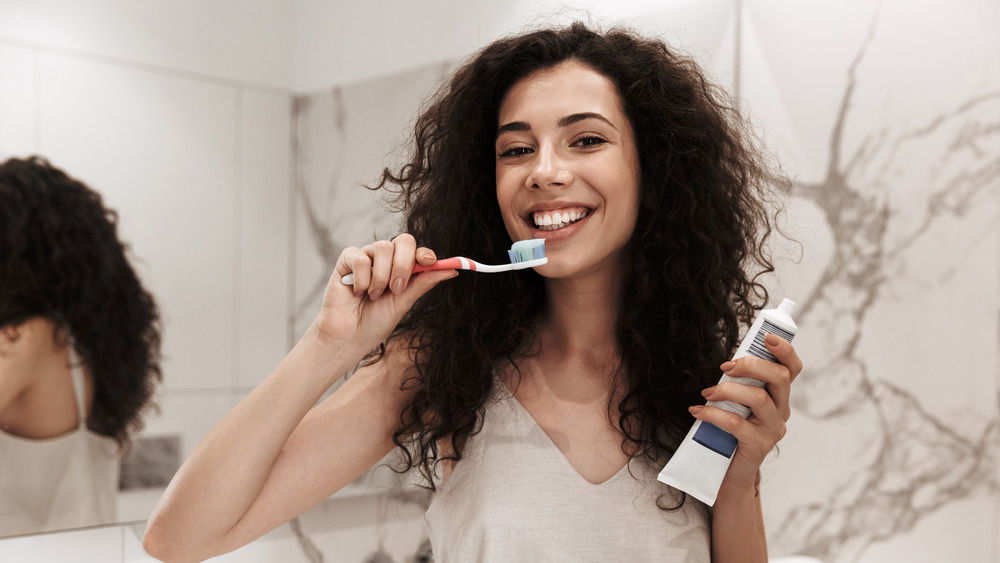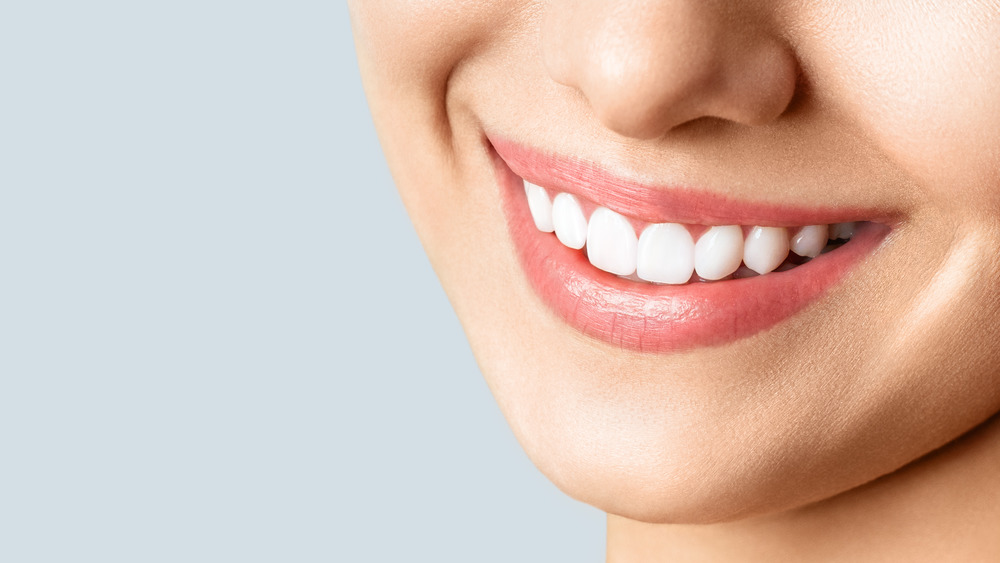This Is What Happens When You Stop Using Toothpaste
We know the idea of not using toothpaste to clean your teeth sounds crazy. You want fresh breath, after all. And healthy teeth! And strong gums! But the trend of ditching traditional store-bought toothpaste like Crest and Colgate in favor of more natural and homemade options keeps growing, and for good reason. Some toothpaste substitutes boast some impressive benefits, while some ingredients in traditional toothpaste are downright scary.
First, there's fluoride, which is a highly controversial ingredient in toothpaste. While it's true that it can help strengthen enamel and teeth in general when used over time, fluoride can potentially cause thyroid issues, fertility issues, neurological problems, and fetal developmental problems when used by pregnant women (via Medical News Today).
Triclosan is another potentially-harmful ingredient in many toothpastes. It's used as an antibacterial agent, but the FDA banned the use of this ingredient in antibacterial soaps in 2016, citing lack of proof that it was safe. So why is it still in toothpaste? Because antibacterial soaps are considered over-the-counter drugs, which means they need FDA approval. The same is not true for toothpaste, and because very few human studies have been done, triclosan hasn't been proven unsafe in that application. That said, animal studies have suggested triclosan may be harmful to fertility, thyroid health, and might increase sensitivities to allergens (via WebMD). Many toothpastes also contain foaming agents like sodium lauryl sulfate, which is basically liquid soap, and artificial flavorings that some choose to avoid (via Dental Buzz).
What to use instead of toothpaste and why it might be healthy
According to Healthline there are multiple benefits to making your own toothpaste at home, including going "green" by using less plastic packaging, the ability to choose your own ingredients, and the options to customize everything from the flavor to the level of abrasiveness. However, the site cautions readers to thoroughly research recipes you may find online, as some suggest using ingredients that can be harmful. For instance, you should never include vinegar, hydrogen peroxide, or lemon juice in your home-made toothpaste because they can strip your enamel and cause damage to your teeth.
That said, many ingredients commonly used in home-made toothpaste are perfectly safe and can be very healthy. Coconut oil, for example, often used for a mouth-cleaning method called "oil pulling," can kill bacteria in your mouth, freshen breath, reduce plaque, prevent cavities, and even reduce inflammation, thereby improving gum health (via Healthline). Including sage in your toothpaste may also be a good idea because it's been found to reduce gingivitis and even treat mouth ulcers. Baking soda is an effective and mild abrasive that can help remove plaque and whiten teeth, and while the American Dental Association hasn't slapped its approval on any other product in this list, it has approved baking soda as safe and healthy for tooth care (via Dental Blu).

